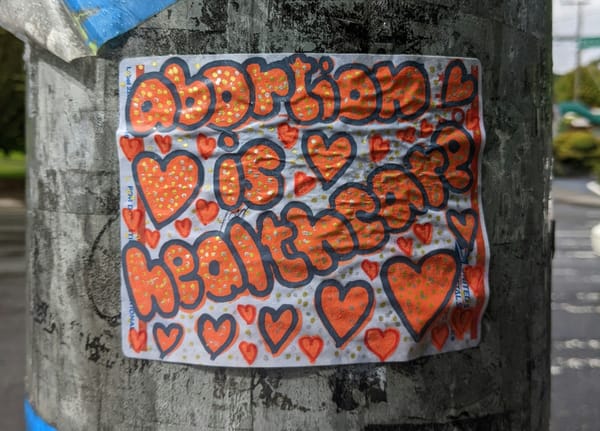Texas Supreme Court Rejects Challenge To Abortion Ban

On Friday, the Texas Supreme Court finally issued a ruling in a widely anticipated case concerning the state’s strict abortion laws. In a unanimous decision, the Court declined to uphold a challenge brought forth by several plaintiffs that were seeking to clarify the medical exemptions to the abortion ban in the state.
The lawsuit, known as Zurawski v. Texas, had been filed by the Center for Reproductive Rights on behalf of 22 plaintiffs in Texas. Five of the original plaintiffs were denied abortions in the state and suffered a range of devastating outcomes, including sepsis and a loss of their own fertility.
After the Supreme Court issued the ruling, Molly Duane, a senior staff attorney at the Center issued a statement. “This outrageous ruling clearly demonstrates that Texas’s ‘medical exceptions’ to its extreme abortion bans just don’t work,” she said. “This ruling means that pregnant Texans will continue to suffer because they can’t access the medical care they desperately need.”
Amanda Zurawski, the lead plaintiff, also blasted the ruling. “I am outraged on behalf of my fellow plaintiffs, who the Court deemed not sick enough,” she said. During her pregnancy Zurawski suffered from a preterm premature rupture of the membrane and developed a case of sepsis, which almost killed her. She had previously testified to Congress about her ordeal in Texas, which included spending three days in an ICU.
The decision from the Supreme Court affirms that the medical exceptions in the current Texas abortion ban are sufficient, and do not need to be further clarified or broadened. Last year, a judge in Travis County granted an injunction after the hearing the case, which would have allowed doctors to use judgment in determining when an abortion is medically necessary. Attorney General Ken Paxton immediately appealed that ruling.
Skye Perryman, the CEO of the legal advocacy organization Democracy Forward, called the decision from the Texas Supreme Court “harmful to patients, to physicians and health care professionals, and to the state’s ability to provide high-quality care and services to its more than 30 million residents,” in a statement. Perryman and Democracy Forward filed an amicus brief in Zurawski v. Texas on behalf of the American College of Obstetricians and Gynecologists (ACOG) and the American Medical Association (AMA) and other Texas medical groups. The amicus brief detailed how extreme anti-abortion laws enacted in Texas would lead to a shortage of OB-GYNs, as well as deterring potential new doctors or medical students from moving to the state.
Perryman’s statement further emphasized the consequences of upholding such a strict abortion ban. “Texas, again, has substituted the expertise of medical professionals and patients’ reliance on that expertise with an extreme ideology that is harmful and deeply unpopular, all while the state continues to experience a maternal mortality crisis and ranks among the very worst states in the nation for health care,” said Perryman. “It is past time for the state’s leaders to stop their improper interference in the provision of quality and necessary medical care.”
All nine Supreme Court judges in Texas are Republicans. Three Supreme Court judges, Jimmy Blacklock, Jane Bland, and John Devine are up for re-election in November.






